Rigid bar ABCD is loaded and supported as shown. Steel [E=28500 ksi] bars (1) and (2) are unstressed before the load P is applied. Bar (1) has a cross-sectional area of 0.72 in.2 and bar (2) has a cross-sectional area of 0.43 in.2. After load P is applied, the strain in bar (1) is found to be 630 με. Assume L1-63 in., L₂-84 in., a-28 in., b-22 in., and c-39 in. Determine: (a) the stresses in bars (1) and (2). (b) the vertical deflection vp of point D on the rigid bar. (c) the load P. A Answers: L₁ a (1) L2 B b (2) C D C (a) σ₁ = (b) VD = i (c) P = i i in. ksi, σ₂ = i kips. P ksi. A pin-connected structure is supported and loaded as shown. Member ABCD is rigid and is horizontal before the load P is applied. Bars (1) and (2) are both made from steel [E = 30,000 ksi] and both have a cross-sectional area of 1.25 in.2. If the normal stress in bar (1) must be limited to 17 ksi, determine the maximum load P that may be applied to the rigid bar. 80 in. B (1) 120 in. (2) C D 54 in. 54 in. 24 in. 43.4 kips 40.8 kips 38.3 kips 31.9 kips ○ 29.8 kips
Rigid bar ABCD is loaded and supported as shown. Steel [E=28500 ksi] bars (1) and (2) are unstressed before the load P is applied. Bar (1) has a cross-sectional area of 0.72 in.2 and bar (2) has a cross-sectional area of 0.43 in.2. After load P is applied, the strain in bar (1) is found to be 630 με. Assume L1-63 in., L₂-84 in., a-28 in., b-22 in., and c-39 in. Determine: (a) the stresses in bars (1) and (2). (b) the vertical deflection vp of point D on the rigid bar. (c) the load P. A Answers: L₁ a (1) L2 B b (2) C D C (a) σ₁ = (b) VD = i (c) P = i i in. ksi, σ₂ = i kips. P ksi. A pin-connected structure is supported and loaded as shown. Member ABCD is rigid and is horizontal before the load P is applied. Bars (1) and (2) are both made from steel [E = 30,000 ksi] and both have a cross-sectional area of 1.25 in.2. If the normal stress in bar (1) must be limited to 17 ksi, determine the maximum load P that may be applied to the rigid bar. 80 in. B (1) 120 in. (2) C D 54 in. 54 in. 24 in. 43.4 kips 40.8 kips 38.3 kips 31.9 kips ○ 29.8 kips
Materials Science And Engineering Properties
1st Edition
ISBN:9781111988609
Author:Charles Gilmore
Publisher:Charles Gilmore
Chapter6: Introduction To Mechanical Properties
Section: Chapter Questions
Problem 6.3P: Compare the engineering and true secant elastic moduli for the natural rubber in Example Problem 6.2...
Related questions
Question
ANSWER
![Rigid bar ABCD is loaded and supported as shown. Steel [E=28500 ksi] bars (1) and (2) are unstressed before the load P is applied. Bar
(1) has a cross-sectional area of 0.72 in.2 and bar (2) has a cross-sectional area of 0.43 in.2. After load P is applied, the strain in bar (1) is
found to be 630 με. Assume L1-63 in., L₂-84 in., a-28 in., b-22 in., and c-39 in. Determine:
(a) the stresses in bars (1) and (2).
(b) the vertical deflection vp of point D on the rigid bar.
(c) the load P.
A
Answers:
L₁
a
(1)
L2
B
b
(2)
C
D
C
(a) σ₁ =
(b) VD = i
(c) P =
i
i
in.
ksi, σ₂ = i
kips.
P
ksi.](/v2/_next/image?url=https%3A%2F%2Fcontent.bartleby.com%2Fqna-images%2Fquestion%2F31ef42d1-872d-4813-9f50-598851dddfe9%2F279f6aca-b330-4f5b-8941-e3de2373d233%2Fg4x3e4q_processed.jpeg&w=3840&q=75)
Transcribed Image Text:Rigid bar ABCD is loaded and supported as shown. Steel [E=28500 ksi] bars (1) and (2) are unstressed before the load P is applied. Bar
(1) has a cross-sectional area of 0.72 in.2 and bar (2) has a cross-sectional area of 0.43 in.2. After load P is applied, the strain in bar (1) is
found to be 630 με. Assume L1-63 in., L₂-84 in., a-28 in., b-22 in., and c-39 in. Determine:
(a) the stresses in bars (1) and (2).
(b) the vertical deflection vp of point D on the rigid bar.
(c) the load P.
A
Answers:
L₁
a
(1)
L2
B
b
(2)
C
D
C
(a) σ₁ =
(b) VD = i
(c) P =
i
i
in.
ksi, σ₂ = i
kips.
P
ksi.
![A pin-connected structure is supported and loaded as shown. Member ABCD is rigid and is horizontal before the load P is applied. Bars
(1) and (2) are both made from steel [E = 30,000 ksi] and both have a cross-sectional area of 1.25 in.2. If the normal stress in bar (1)
must be limited to 17 ksi, determine the maximum load P that may be applied to the rigid bar.
80 in.
B
(1)
120 in.
(2)
C
D
54 in.
54 in.
24 in.
43.4 kips
40.8 kips
38.3 kips
31.9 kips
○ 29.8 kips](/v2/_next/image?url=https%3A%2F%2Fcontent.bartleby.com%2Fqna-images%2Fquestion%2F31ef42d1-872d-4813-9f50-598851dddfe9%2F279f6aca-b330-4f5b-8941-e3de2373d233%2Fma8sifu_processed.jpeg&w=3840&q=75)
Transcribed Image Text:A pin-connected structure is supported and loaded as shown. Member ABCD is rigid and is horizontal before the load P is applied. Bars
(1) and (2) are both made from steel [E = 30,000 ksi] and both have a cross-sectional area of 1.25 in.2. If the normal stress in bar (1)
must be limited to 17 ksi, determine the maximum load P that may be applied to the rigid bar.
80 in.
B
(1)
120 in.
(2)
C
D
54 in.
54 in.
24 in.
43.4 kips
40.8 kips
38.3 kips
31.9 kips
○ 29.8 kips
Expert Solution
This question has been solved!
Explore an expertly crafted, step-by-step solution for a thorough understanding of key concepts.
Step by step
Solved in 2 steps with 3 images

Recommended textbooks for you
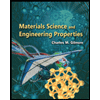
Materials Science And Engineering Properties
Civil Engineering
ISBN:
9781111988609
Author:
Charles Gilmore
Publisher:
Cengage Learning

Principles of Foundation Engineering (MindTap Cou…
Civil Engineering
ISBN:
9781337705028
Author:
Braja M. Das, Nagaratnam Sivakugan
Publisher:
Cengage Learning
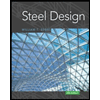
Steel Design (Activate Learning with these NEW ti…
Civil Engineering
ISBN:
9781337094740
Author:
Segui, William T.
Publisher:
Cengage Learning

Materials Science And Engineering Properties
Civil Engineering
ISBN:
9781111988609
Author:
Charles Gilmore
Publisher:
Cengage Learning

Principles of Foundation Engineering (MindTap Cou…
Civil Engineering
ISBN:
9781337705028
Author:
Braja M. Das, Nagaratnam Sivakugan
Publisher:
Cengage Learning

Steel Design (Activate Learning with these NEW ti…
Civil Engineering
ISBN:
9781337094740
Author:
Segui, William T.
Publisher:
Cengage Learning
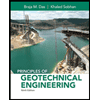
Principles of Geotechnical Engineering (MindTap C…
Civil Engineering
ISBN:
9781305970939
Author:
Braja M. Das, Khaled Sobhan
Publisher:
Cengage Learning
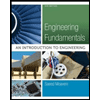
Engineering Fundamentals: An Introduction to Engi…
Civil Engineering
ISBN:
9781305084766
Author:
Saeed Moaveni
Publisher:
Cengage Learning
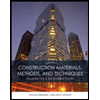
Construction Materials, Methods and Techniques (M…
Civil Engineering
ISBN:
9781305086272
Author:
William P. Spence, Eva Kultermann
Publisher:
Cengage Learning